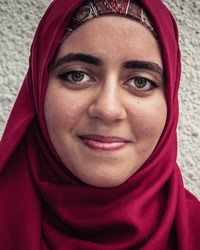Bosniak in Australia

Photo Source:
Michał Huniewicz - Flickr
Creative Commons
|
Send Joshua Project a map of this people group.
|
| People Name: | Bosniak |
| Country: | Australia |
| 10/40 Window: | No |
| Population: | 18,000 |
| World Population: | 3,139,000 |
| Primary Language: | Bosnian |
| Primary Religion: | Islam |
| Christian Adherents: | 0.50 % |
| Evangelicals: | 0.30 % |
| Scripture: | Complete Bible |
| Ministry Resources: | Yes |
| Jesus Film: | Yes |
| Audio Recordings: | Yes |
| People Cluster: | Slav, Southern |
| Affinity Bloc: | Eurasian Peoples |
| Progress Level: |
|
Introduction / History
Bosnia and Herzegovina is a mountainous state in the central Balkans with a population of over 4 million people. Until recently this homeland of the Bosniak people had not known independence for centuries. Hungary controlled the region beginning in 1254. From 1463 to 1878 the Ottoman Empire ruled the Bosniaks—the period of their longest subjugation, and one in which they adopted the empire's Muslim religion. After this Bosnia was officially incorporated into the Austro-Hungarian Empire. Guerrilla warfare was interwoven into this period of history for the Bosniaks, who fought against the occupying Germans, the Serbian Chetniks and the Croatian Ustasa from 1941 to 1945. In 1943, the communist Yugoslav federation was formed at Jajce in Bosnia, with Bosnia-Herzegovina being named a constituent republic.
Unlike the other Yugoslav republics, Bosnia had no dominant ethnic group. It was divided among Catholic Croatians, Muslim Bosniaks, and Orthodox Serbs. This division ended up causing a civil war in 1992. In March of 1992, independence was gained for Bosnia-Herzegovina. The Serbian population was unhappy, but the government allied with the Croatians and the Muslims. This led to a second civil war, which lasted until 1995. During and after this war, Bosnians began migrating to other nations, including Australia.
In most Western countries, the Bosniaks were generally regarded as displaced peoples and often eventually returned to their homeland. Those Bosnians who migrated to Australia, however, were known as immigrants and often had permanent resettlement in mind. In the four years after the second civil war, the number of Bosnian-born immigrants in Australia grew rapidly. According to the Australian Government Department of Immigration, the majority of Bosnia and Herzegovina-born immigrants are in the states of Victoria and New South Wales.
What Are Their Lives Like?
For many Bosniaks before the second civil war, collective identities were traditional. These identities centered on religion and ethnicity. Traditional Bosniak culture is based on zavicaj, or the sense of community and cultural network. In this culture elders are of highest importance. Extended families live together, with grandparents helping take care of the children.
The traditional Bosniak way of life is still shaped by the homeland, although customs are changing among younger people in Australia and elsewhere. Traditional culture includes lively music known as "sevdalinke" and "ilagije." Bosniak folklore, dating back to beyond the 15th century, features dragons, fairies and figures skilled in battle. "Muštuluk," another folk tradition, involves giving a gift to those who bring good news.
What Are Their Beliefs?
Bosniaks have a low opinion of religion, so they seldom will listen to those who tell them about Jesus. Most of the Bosniaks in Australia are Sunni Muslim, but there is a Christian minority among them. There are conflicting reports about how many Christians there are.
What Are Their Needs?
The Bosniak people need the New Testament translated into their language. Since there is already a JESUS Film available for them to see, prayer and translation are key.
Prayer Points
Ask God to call missionaries to this area and for them to respond to this call.
Ask God to soften the hearts of those who are hearing the gospel.
Pray for encouragement of those going to serve and any believers among the Bosniaks.
Pray for the needs of the people to be met in accordance with the will of God.
Ask God for people's hearts to be moved by this people group and for prayer teams to begin praying for the Bosniak people.